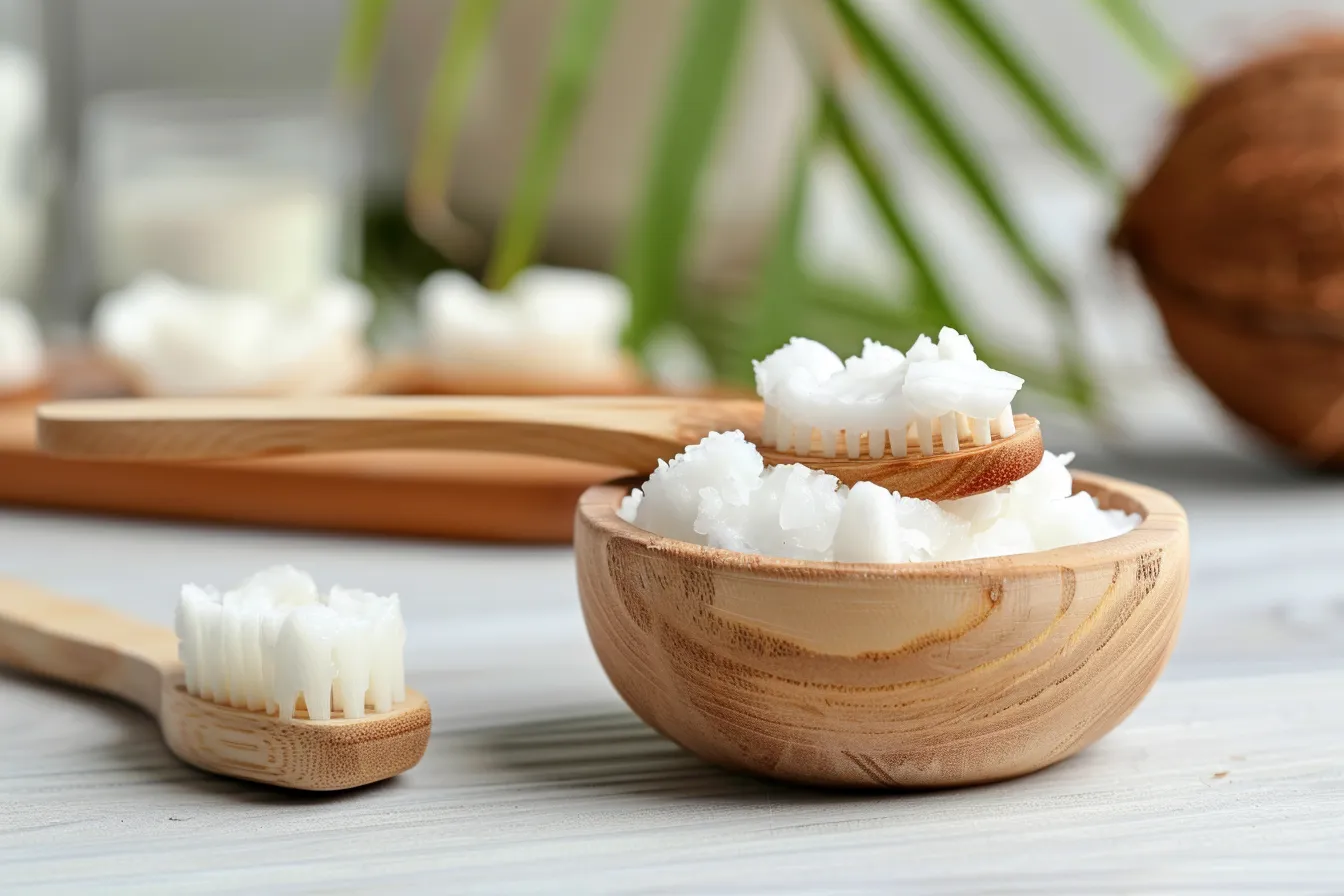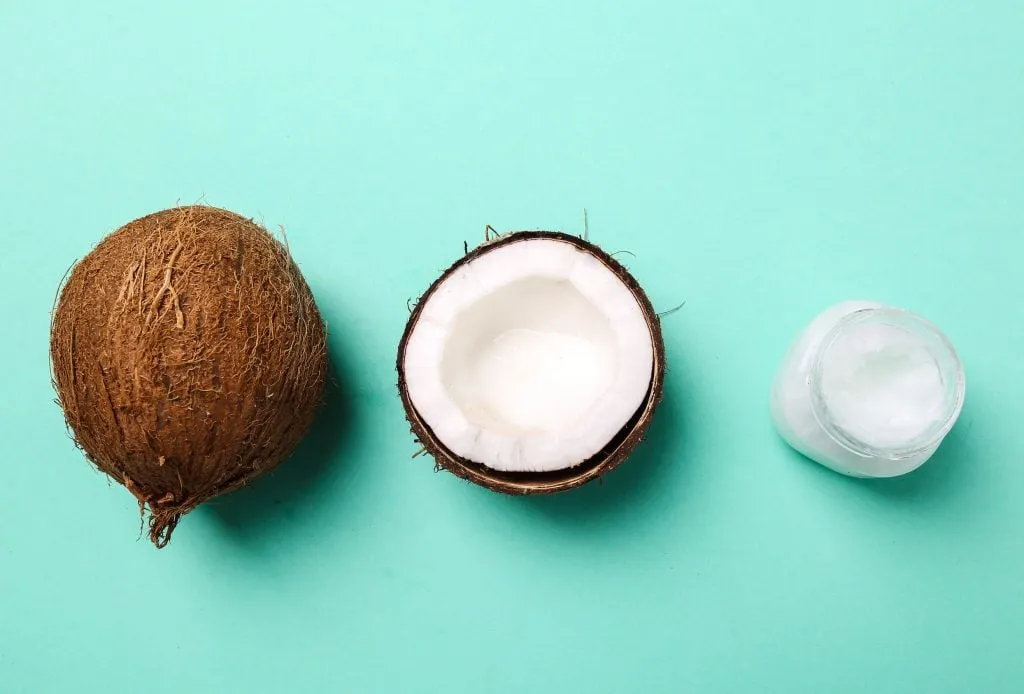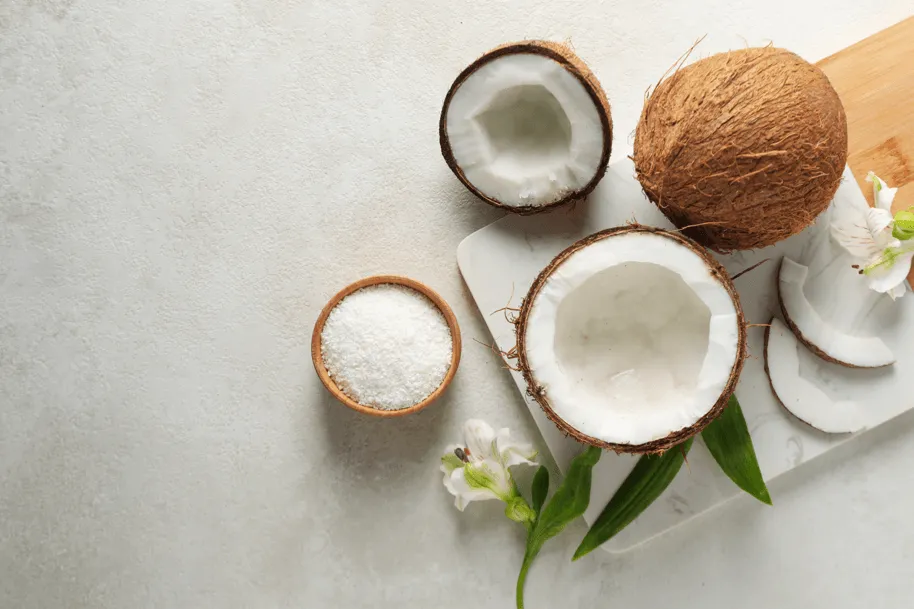What is Coconut Oil and Why Use It?
Coconut oil, derived from the fruit of the coconut palm, has gained significant popularity in recent years, not only for its culinary uses but also for its potential health benefits. Its rich composition, primarily consisting of medium-chain triglycerides (MCTs), gives it unique properties that make it a versatile ingredient in various applications. The use of coconut oil extends beyond the kitchen, finding its way into skincare, haircare, and, notably, oral hygiene. Its natural antimicrobial and anti-inflammatory properties make it a promising contender in the realm of teeth whitening, offering a more natural alternative to conventional methods.
The appeal of using coconut oil for teeth whitening lies in its gentle approach, free from harsh chemicals often found in commercial products. People are increasingly seeking natural remedies for their health concerns, and coconut oil fits this trend. It’s readily available, affordable, and relatively simple to incorporate into your daily routine. The growing interest in holistic health and wellness has further fueled the demand for such natural solutions, making coconut oil a popular choice for those looking to improve their oral hygiene in a more natural way. The numerous testimonials and anecdotal evidence further contribute to its popularity, encouraging individuals to explore its potential benefits.
The Science Behind Coconut Oil Teeth Whitening
While the concept of using coconut oil for teeth whitening may seem unconventional, there is scientific backing to support its potential benefits. The mechanism primarily revolves around its unique composition, particularly its lauric acid content, which constitutes a significant portion of the MCTs. Lauric acid has demonstrated potent antimicrobial properties, effectively combating harmful bacteria in the mouth. These bacteria are known to contribute to plaque buildup, tooth decay, and discoloration. By reducing the bacterial load, coconut oil can indirectly help in maintaining a cleaner oral environment, potentially reducing stains and preventing further staining.
Furthermore, the anti-inflammatory properties of coconut oil can aid in soothing inflamed gums and reducing gingivitis. A healthier gum environment can positively impact the overall appearance of your teeth, making them appear brighter. Although direct evidence of coconut oil’s whitening effect on teeth is limited compared to traditional methods, the indirect benefits related to bacterial reduction and plaque removal contribute to a cleaner and potentially whiter smile. Further research is ongoing to fully understand the extent of its efficacy in teeth whitening, but the existing scientific data supports its role in improving oral health.
How Coconut Oil Whitens Teeth

Coconut oil’s whitening action is primarily achieved through its ability to tackle the factors that contribute to tooth discoloration. It works through two primary mechanisms: removing surface stains and reducing bacteria and plaque. The effectiveness of coconut oil is attributed to its unique composition, especially the presence of lauric acid. This fatty acid exhibits strong antimicrobial properties, which are key to maintaining a healthier oral environment.
Removing Surface Stains
Surface stains on teeth often result from the consumption of foods and beverages that contain chromogens—pigments that adhere to the enamel surface. Coffee, tea, red wine, and certain fruits and vegetables are common culprits. Coconut oil can help to gently remove these surface stains. The oil’s unique ability to penetrate and dissolve fat-soluble substances enables it to lift and eliminate some of these stains. While it may not be as effective as professional whitening treatments, it can contribute to a brighter smile by removing some of the accumulated discoloration.
Reducing Bacteria and Plaque
The antimicrobial properties of coconut oil are crucial in reducing the bacteria that contribute to plaque formation. Plaque, a sticky film of bacteria, acids, and food debris, is a major cause of tooth discoloration and decay. By reducing plaque, coconut oil helps maintain a cleaner mouth, which in turn can prevent new stains from forming and indirectly contribute to a whiter smile. The reduction of harmful bacteria also promotes overall oral health, reducing the risk of gum disease and other oral infections.
Best Methods for Coconut Oil Teeth Whitening

Incorporating coconut oil into your oral hygiene routine can be done through various methods, each with its specific approach. The most popular methods include oil pulling, using coconut oil toothpaste, and combining coconut oil with baking soda. The choice of method often depends on individual preference and the desired level of convenience. These methods highlight the versatility of coconut oil and offer accessible options for those seeking a natural approach to oral care.
Oil Pulling Technique
Oil pulling is an ancient Ayurvedic practice that involves swishing oil in your mouth for a specific duration, typically 10-20 minutes, to remove bacteria and toxins. To perform oil pulling with coconut oil, take one to two tablespoons of the oil and swish it gently throughout your mouth, ensuring it reaches all areas. The oil becomes milky as it mixes with saliva. After the allotted time, spit the oil into a trash can (to avoid clogging pipes) and rinse your mouth with water. Follow up by brushing your teeth as usual. It’s best done on an empty stomach, ideally in the morning before breakfast. Consistency is key, and regular practice can lead to noticeable improvements in oral hygiene, including a potential whitening effect.
Coconut Oil Toothpaste
Coconut oil toothpaste is a simple and effective way to incorporate coconut oil into your daily routine. You can either purchase commercially available coconut oil toothpaste or make your own at home. A homemade recipe typically includes coconut oil, baking soda, and sometimes a few drops of essential oils like peppermint for flavor and additional benefits. This method offers a more traditional approach to oral hygiene, combining the benefits of coconut oil with the cleaning action of brushing. When brushing, use a soft-bristled toothbrush and gently massage the toothpaste onto your teeth and gums. This method can help to remove plaque and surface stains while providing the antimicrobial benefits of coconut oil.
Coconut Oil with Baking Soda

Combining coconut oil with baking soda is another popular method. Baking soda acts as a gentle abrasive, which can help to remove surface stains. To create this mixture, combine one tablespoon of coconut oil with one teaspoon of baking soda. Mix them into a paste. Brush your teeth with this mixture, using gentle circular motions. Be cautious not to brush too vigorously to avoid damaging the enamel. This method is a step up in abrasiveness compared to using coconut oil alone, and it can be more effective in removing certain types of stains. It is important to use this method in moderation to protect your teeth.
Things to Consider Before Using Coconut Oil
Before you embrace coconut oil for teeth whitening, it is important to consider some key aspects to ensure the best and safest outcome. These considerations include understanding potential side effects and the importance of consulting with a dental professional. Considering these points will help you make an informed decision and integrate coconut oil into your oral hygiene routine safely and effectively.
Potential Side Effects
While coconut oil is generally safe, some people may experience mild side effects. Some users might experience a temporary increase in oil production in the mouth, leading to a slightly oily feeling. Others may find the taste or texture of the oil unpleasant, especially during oil pulling. In rare cases, excessive use of coconut oil can lead to digestive issues. Always begin with a small amount to assess your body’s reaction. If you experience any adverse effects, such as mouth irritation or increased sensitivity, discontinue use and consult with a dentist or healthcare provider.
Consulting Your Dentist

It is highly recommended to consult your dentist before incorporating any new teeth whitening method, including coconut oil. A dentist can assess your oral health, identify any underlying issues, and provide personalized recommendations. They can also advise you on the suitability of coconut oil based on your specific needs. They can also provide professional whitening treatments that may be more effective for certain types of stains. Regular dental check-ups are essential for maintaining optimal oral health, and your dentist can guide you on integrating natural remedies like coconut oil into a broader oral care strategy.
In conclusion, while coconut oil shows promise as a natural teeth-whitening agent, understanding its limitations and consulting with a dental professional is essential for effective and safe use. Its benefits extend beyond whitening, offering significant improvements in oral hygiene due to its antimicrobial and anti-inflammatory properties. By adopting a balanced approach that combines coconut oil with established dental care practices, you can work towards achieving a brighter, healthier smile.
